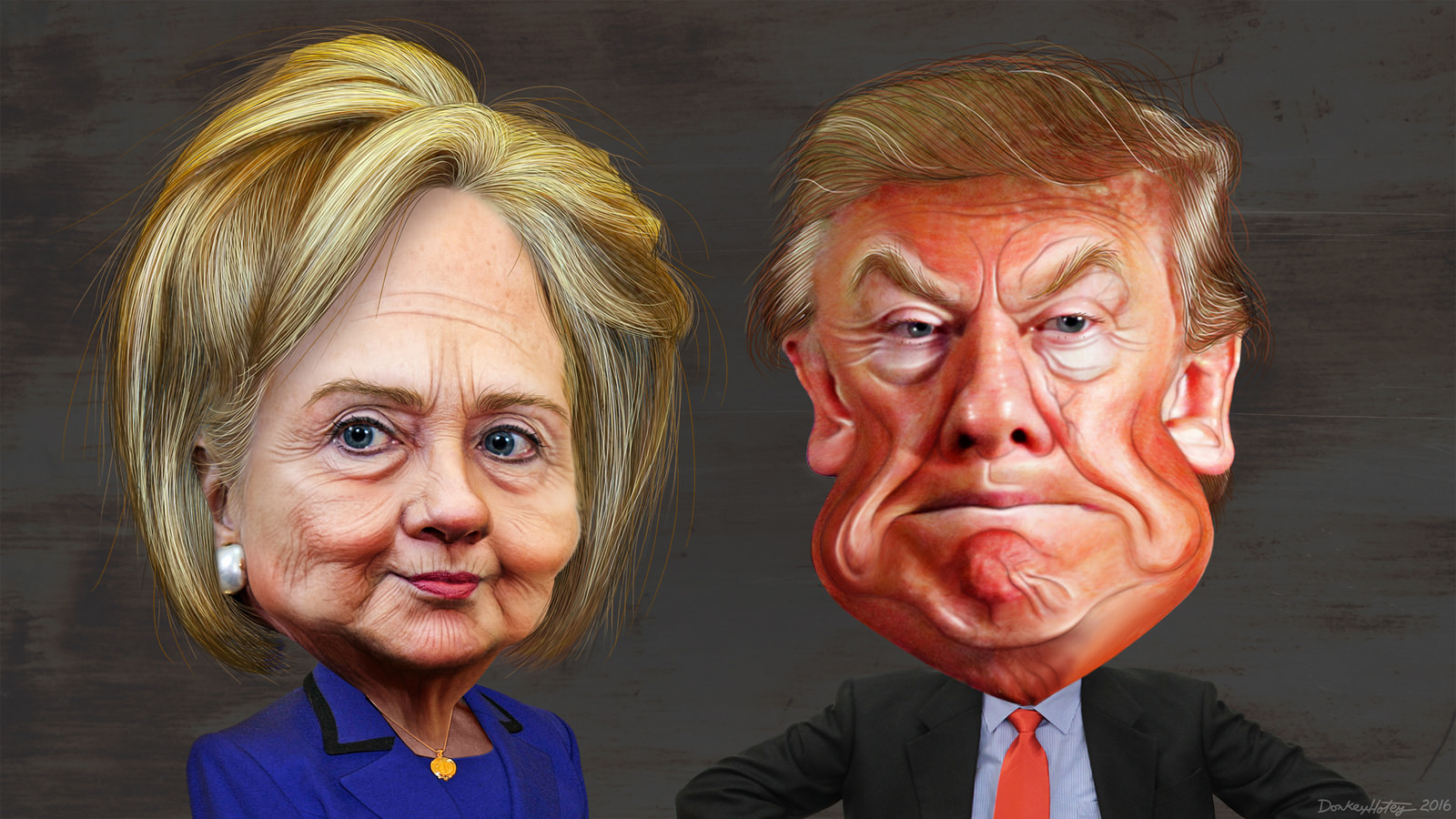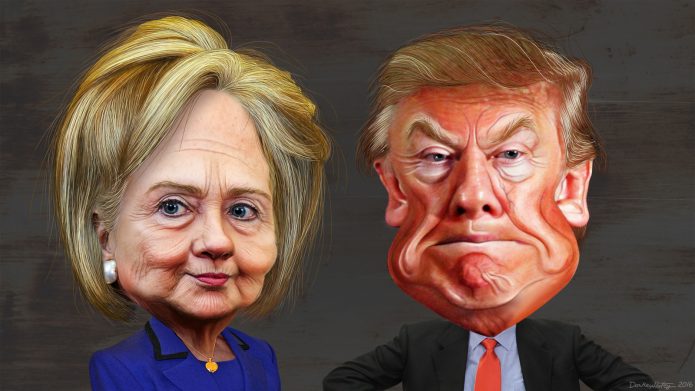(Photo: DonkeyHotey:Flickr)
White House hopefuls Hillary Clinton and Donald Trump hold radically different ideas on how to create an economy that works for everyone, not just the wealthiest among us. These differences were on full display Monday night as Presidential debate moderator Lester Holt brought up income inequality right out of the gate.
Inequality would go on to play a major role throughout the debate, especially during these five memorable inequality moments.
- Trump on not paying taxes: “That makes me smart”
Donald Trump will likely go down as the only major party presidential candidate in modern history not to release his personal tax returns. Hillary Clinton listed out the many reasons why Trump might have for hiding his returns, including not wanting the public to know how rich he is (or isn’t), who he owes money to, how charitable he really is, and, perhaps most importantly, how little he has paid in taxes.
Trump did not deny paying zero taxes, as Clinton not-so-subtlely charged, but instead remarked, “That makes me smart.” Moderator Lester Holt reminded the candidate that his stated reason for not releasing his tax returns — because the IRS is auditing him — was bogus, informing Trump that “you’re perfectly free to release your taxes during an audit.”
- “Trumped-Up Trickle Down Economics”
Lester Holt opened the segment on tax reform stating that “the fundamental difference between the two of you concerns the wealthy.” Clinton wants to raise taxes on the wealthy with a new plan that includes strengthening the federal estate tax and moves that would close loopholes that only benefit the nation’s richest. She looks to reinvest this revenue into programs like rebuilding infrastructure and expanding early childhood education.
Trump wants to usher in “the biggest tax cut since Reagan.” His plan, analysts point out, would trigger a $5 trillion increase in the national debt, and Clinton called it a rehash of the failed trickle down economics of the 1980s, or, she put it, “Trumped-up trickle down”
- NAFTA was terrible and TPP just as bad
Donald Trump’s strongest showing came during the debate’s discussion on trade. He hammered the North American Free Trade Agreement, the infamous NAFTA that Bill Clinton signed into law, and the Trans-Pacific Partnership, or TPP, the latest free trade agreement under consideration.
Both candidates stumbled over themselves declaring how much they oppose the TPP, an encouraging sign, and argued over when exactly Clinton began her opposition to the TPP and what the actual impact of NAFTA has been.
The overall message from their exchanges: Neither wants to be associated with a controversial free trade agreement. For the millions of workers and environmentalists around the world that oppose the TPP, this could hardly be a more welcome development.
- Trump profited on the housing crisis
Millions of families have yet to fully recover from the 2008 financial crisis fueled by speculation in the subprime housing market.
“Nine million people lost their jobs,” Clinton reminded viewers. “Five million people lost their homes. And $13 trillion in family wealth was wiped out.”
Clinton also quoted a remark Trump had made about the housing market in the lead-up to the crisis.
“Gee,” she paraphrased, “I hope it does collapse, because then I can go in and buy some and make some money.”
Trump did not dispute the sentiment behind the quote.
“That’s called business,” he replied.
Business that profiteering may have been, but ruthless cold comfort to the millions of families who lost everything.
- Clinton lists inequality talking points
During the debate, Clinton channeled many of the positions that Bernie Sanders had taken during the primary battle. Her opening remarks delivered these positions up in almost a bulleted. She called for “creating an economy that works for everyone, not just those at the top,” by raising the national minimum wage, ensuring equal pay for women’s work, guaranteeing workers paid family leave and earned sick days, and introducing affordable child care and debt-free college.
Clinton said she would pay for these initiatives by “having the wealthy pay their fair share and closing the corporate loopholes.” Later, she reiterated her support for a financial transaction tax, noting we need “a tax system that rewards work and not just financial transactions.”

